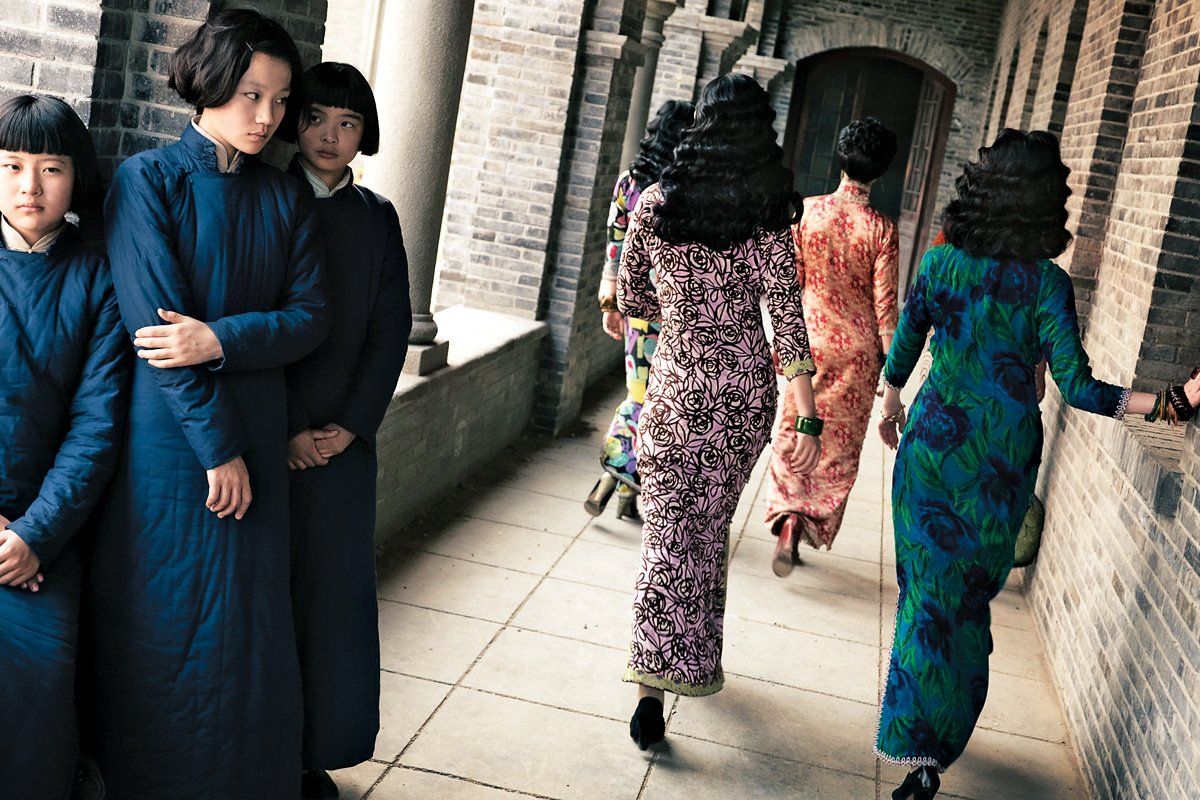
In the winter of 1937, the Japanese army stormed Nanjing, then China's capital, slaughtering hundreds of thousands of people in what is now known as the Nanjing Massacre. The incident remains the most emotionally wrenching chapter in the history of Sino-Japanese relations. But unlike the Holocaust and other acts of mass violence during World War II, creative attempts to represent the massacre have been few and far between.
Over the past few years, however, there has been an outpouring of dramatizations of Nanjing in literature and film, as a new generation of Chinese auteurs attempt to grapple with the tragedy, and juggle the demands of their audience, their censors, and their own artistic conscience. Last fall, for instance, National Book Award–winning author Ha Jin published the English-language novel, Nanjing Requiem, which explores the role foreigners played in trying to save the Chinese. And last month brought Zhang Yimou's The Flowers of War, the most expensive film ever made in China, which tells the story of a priest, played by Christian Bale, who tries to shelter schoolchildren and prostitutes from the Japanese.
Such reflection on tragedy wasn't always common. For years, after the Communists came to power, the state wanted to bury the massacre entirely and maintain good relations with the new Japanese government, which could help support China's struggling economy. Nanjing was the capital of the hated nationalist regime, and the Communists played no role in defending the Chinese from brutality. The massacre did not fit into the Communist Party's history, and since the state did not tolerate dissenting views, very little was published about it.
Starting in the 1980s, however, the political environment changed. As liberalization ensued after the death of Chairman Mao, and relations with the Japanese worsened—in part due to a Japanese textbook that claimed the Imperial Army "advanced into" rather than "invaded" China—the pendulum started to swing the other way. "Anti-Japanese sentiment became a useful tool for the party, and so the Nanjing Massacre came into our mind's eye," says Teng Jimeng, a film critic.
Over the past few years especially, many artists have attempted to mold the nation's past shame into something befitting a superpower. In many of today's representations, nationalism holds sway. The Flowers of War, for instance, panders to the government by portraying the Japanese as mindless and sadistic brutes, with the exception of one colonel who cries at the sound of music. "People say, 'Why do you have to remind us of this story?'" says Yan Geling, the author of the novel 13 Flowers of Nanjing, on which Zhang's movie is based. "They feel it is offensive. I say the shame should be with the rapists and the murders."
Yet in recent years some artists have tried to humanize the Japanese soldiers for a Chinese audience. In the beginning of City of Life and Death, a 2009 film about the massacre, a handful of Japanese soldiers stumble upon a church filled with refugees. An old man raises his hands in surrender. The eyes of the Japanese soldier fill with pity. The film was a critical and commercial success, but extremely controversial. "Almost overnight I became the enemy of the whole nation," says Lu Chuan, the film's director.

Indeed, for many, the defilement by the Japanese—in some instances soldiers castrated monks and forced parents to rape their daughters—remains too raw, and Zhang's portrayal of the pure Chinese facing the Japanese demons remains satisfactory. But for Lu and others, nuance is required: "I don't want to tell lies in my movie," he says. "I do believe Japanese people are human beings. It's a basic truth."
Uncommon Knowledge
Newsweek is committed to challenging conventional wisdom and finding connections in the search for common ground.
Newsweek is committed to challenging conventional wisdom and finding connections in the search for common ground.





